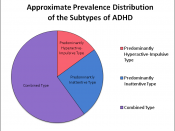The research topic that I have chosen to write on is Hypochondriasis. I have chosen this disorder because until recently hypochondriasis was considered a disorder with no effective treatments and has a very poor prognosis rate. The other reason is that hypochondriasis is usually found in the primary care field and many times may go untreated.
The main treatments for hypochondriasis are small, but the main treatment that is used is cognitive-behavioral therapy. This includes explanatory therapy, exposure and response prevention, and group therapy. In addition, they have found that in patients with secondary hypochondriasis sometimes pharmacohtherapy works well along with cognitive-behavioral therapy.
It is found that a high rate of hypochondriasis patients have co morbid conditions. It is very important to diagnosis this first before treating the patient for hypochondriasis. After diagnosing if the patient has co morbid conditions researchers have found that they are usually able to resolve the hypochondriasis if this is treated first.
If the patient does not have co morbid conditions though usually, the first line of treatment used is the cognitive behavioral therapy.
This type of therapy with hypochondriasis patients is usually very effective but the effectiveness rates are not completely known at this point. With pharmacotherapy researchers have found that in very few cases does this work, and if it does work it is usually with an SSRI. In short, there are very few and effective treatments for hypochondriasis but if diagnosed properly the patient does have a chance at recovery.
References
Blanco, C., Margarinos, M., Nissenson, K., & Zafar, U. (2002). Epidemiology and treatment of hypochondriasis. CNS Drugs, 16(1). 9-22.
Chrisman, S., Hardy, E., & Warmbrodt, L. (2001). Recognizing hypochondriasis in primary care. The Nurse Practitioner 26(6). 26-43.


